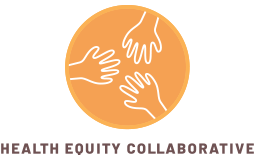17 Nov November is National Diabetes Awareness Month: The Race for a Cure Must Include All Americans
November marks National Diabetes Awareness Month, a time dedicated to raising awareness about this chronic condition that impacts over 38 million Americans. But for the Health Equity Collaborative, this month is more than just about statistics—it’s about shining a bright, critical light on the structural inequities that drive disproportionately high rates of diabetes and poor health outcomes in marginalized communities.
The True Cost of Inequity
While genetics and lifestyle are often cited as factors, the truth is that for many, managing or preventing diabetes is a daily battle against systemic barriers. Diabetes is not simply a personal health challenge; it’s an issue deeply intertwined with the Social Determinants of Health (SDOH).
- Food Deserts and Swamps: Access to affordable, nutritious food is a cornerstone of diabetes prevention and management. Yet, many communities—often those with higher populations of color and lower incomes—live in “food deserts” where healthy options are scarce, or “food swamps” where fast food and junk food saturate the landscape.
- Access to Care: Having insurance is not the end of the story. Barriers like transportation, lack of culturally and linguistically competent care, high medication costs, and distrust in a system that has historically failed them, all contribute to delayed diagnosis and ineffective management.
- Economic Stability and Stress: The relentless stress of financial hardship, unstable housing, and demanding, inflexible work schedules can directly impact blood sugar levels and the ability to adhere to treatment plans. Who can take a lunch break to check their blood sugar or afford a safe place to store insulin when they are juggling multiple low-wage jobs?
As the American Diabetes Association notes, Black, Hispanic/Latino, and American Indian/Alaskan Native communities are up to 70% more likely to have diagnosed diabetes compared to non-Hispanic whites. This disparity is a clear symptom of a broader crisis of health inequity.
A Cure on the Horizon: Ensuring Equity from the Start
Amidst the crucial fight for better access to care today, the biopharma industry is making promising strides toward a cure for diabetes, particularly Type 1. This scientific progress brings immense hope, but it also casts a spotlight on our responsibility to ensure that future breakthroughs don’t become exclusive to the privileged few.
The latest research is focused on truly transformative therapies:
- Stem Cell and Cell Replacement Therapies: Researchers are developing groundbreaking treatments that involve transplanting laboratory-grown, insulin-producing islet cells into patients. Early clinical trials are showing exciting results, offering the possibility of extended insulin independence.
- Immunotherapies and Immune-Evasive Cells: Scientists are working to “re-train” the immune system to stop attacking insulin-producing cells, the core issue in Type 1 diabetes. Other advanced strategies involve developing “hypoimmune” cells that can be safely transplanted without the need for lifelong, costly immunosuppression drugs.
- Beta Cell Regeneration: For both Type 1 and Type 2 diabetes, studies are exploring innovative drug treatments that can stimulate the body to grow new, functional insulin-producing cells.
The existence of these potential cures makes the mission of the Health Equity Collaborative even more urgent. A cure that is too expensive or too complicated to access due to logistical barriers is not a cure for all.
Our Collaborative Commitment: From Awareness to Universal Access
The Health Equity Collaborative was sparked by the belief that collective action and community expertise are the most powerful forces for change. This National Diabetes Awareness Month, we reinforce our commitment to a future where life-extending resources—including the promise of a cure—are abundantly and equitably distributed.
Our work is focused on dismantling the barriers to health, now and in the future:
- Championing Policy Change: We advocate for policies that address the root causes of diabetes, such as investing in community health and ensuring affordable access to life-saving medications and technologies, including future curative therapies.
- Centering Community-Driven Solutions: We invest in and empower local partners—including Community Health Workers (CHWs) and culturally competent educators—who will be critical in delivering complex, next-generation treatments effectively and equitably.
- Advancing Data and Representation: We push for better data collection and increased representation in clinical research to ensure that treatments and programs are safe and effective for all diverse populations.
This November, let’s move beyond basic awareness. Let’s commit to co-creating a system that heals, supports, and empowers every individual, regardless of their race, zip code, or income, ensuring that when a cure arrives, it is a cure for everyone.


